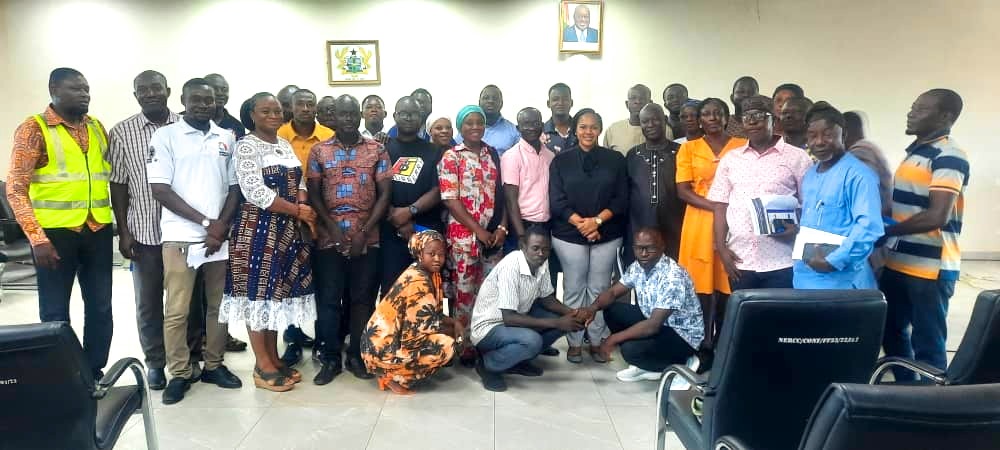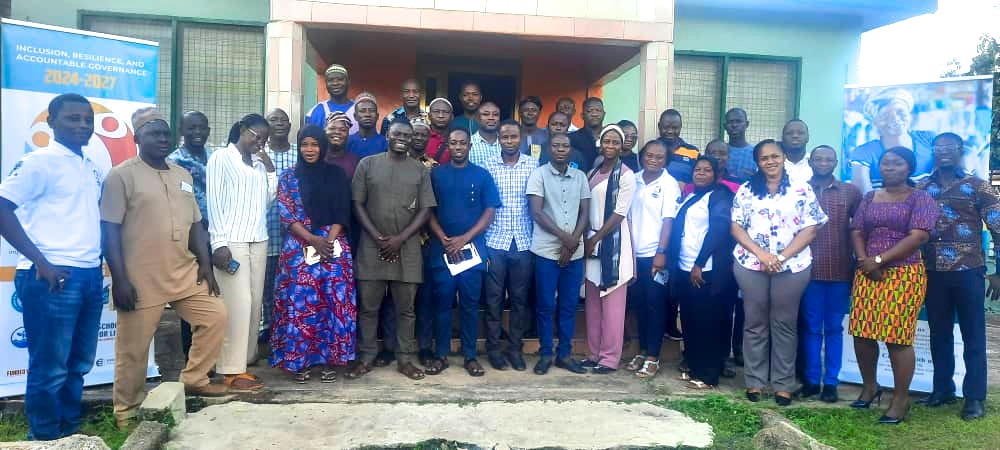By Albert Futukpor
Nalerigu (NE/R), Oct 29, GNA – Selected staff and Civil Society Organisations (CSOs) from 10 Municipal and District Assemblies (MDAs) in the Northern, North East, and Savannah Regions have received training on the Right to Information (RTI) Act aimed at enhancing their knowledge to effectively respond to citizens’ requests for information.
The participants were trained in procedures for accessing information, handling information requests, the review and appeal processes, annual reporting, and applicable fees and charges under the RTI Act.
The training sessions took place at three separate locations; Nalerigu for staff from the East Mamprusi, and West Mamprusi Municipalities and the Yunyoo-Nasuan District; Yendi for staff from the Yendi and Gushegu Municipalities, and the Zabzugu and Tatali-Sangule Districts; and Damongo for staff from the West Gonja Municipality, and the North Gonja, and Sawla-Tuna-Kalba Districts.
It was organised by the Ghana Developing Communities Association (GDCA) as part of its governance efforts under the Empowerment for Life Programme (E4L Programme).
The Governance thematic area of the E4L Programme focuses on key governance issues such as equity, inclusiveness, transparency, responsiveness, and accountability at both local and national levels.
The E4L Programme’s goal is to empower CSOs in northern Ghana to contribute to improved resilience, equity, and accountable governance.
It is being implemented in the 10 MDAs by four local partners; GDCA, School for Life, Changing Lives in Innovative Partnerships, and YEFL-Ghana, with funding support from Civil Society in Development (CISU) through Ghana Venskab, a Danish organisation.

Mr. Michael Duodu Sakyiama, Manager, Policy Planning, Budgeting, Monitoring, and Evaluation, RTI Commission, who led a team from the RTI Commission to facilitate the training, noted that while participants had some knowledge of the RTI Act, there were still challenges regarding their responsibilities under the law.
He emphasised that every public institution must have an RTI Unit, managed by an Information Officer or a designated officer, to receive and respond to information requests.
He urged public institutions to respond to such requests promptly to avoid penalties under the RTI Act.
Mr. Mohammed Avona Akape, Chief Director, North East Regional Coordinating Council, who participated in the training, highlighted its importance saying, “Many of our staff lack understanding of the RTI Act. With this training, we have gained valuable insights, and I believe it will improve how we handle information requests.”
Mr. Justice Achaah Adoah, Information Officer at the East Mamprusi Municipal Assembly, echoed this sentiment, noting that the training covered aspects of the RTI Act that were previously unclear to many participants, despite prior training sessions.

Mr. Damma Mumuni, Director, Administration at the Northern Regional Coordinating Council, said the training was helpful in clarifying the roles and responsibilities of public institutions under the RTI Act.
He emphasised the importance of establishing information units, staffing them with qualified Information Officers, and preparing public information manuals.
Besides the training of selected staff of the 10 MDAs, the officials from the RTI Commission also facilitated a similar training for staff and partners under the E4L Programme.
This was aimed at building their capacity to train others on the RTI Act and to use the Act to access information themselves.
Alhaji Osman Abdel-Rahman, Executive Director of GDCA said access to information was crucial for promoting transparency and accountability and ensuring improved service delivery by public institutions to local communities.
GNA